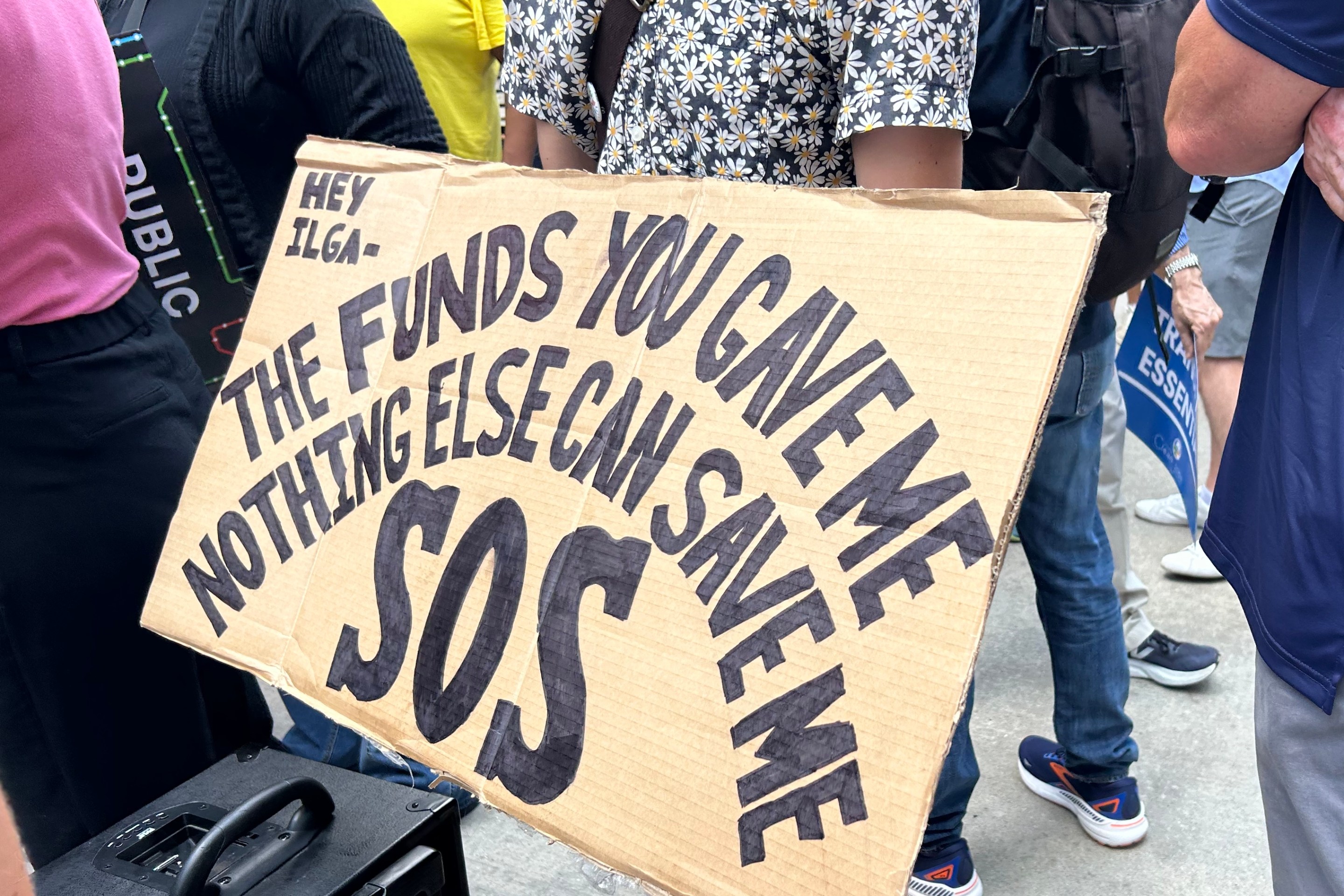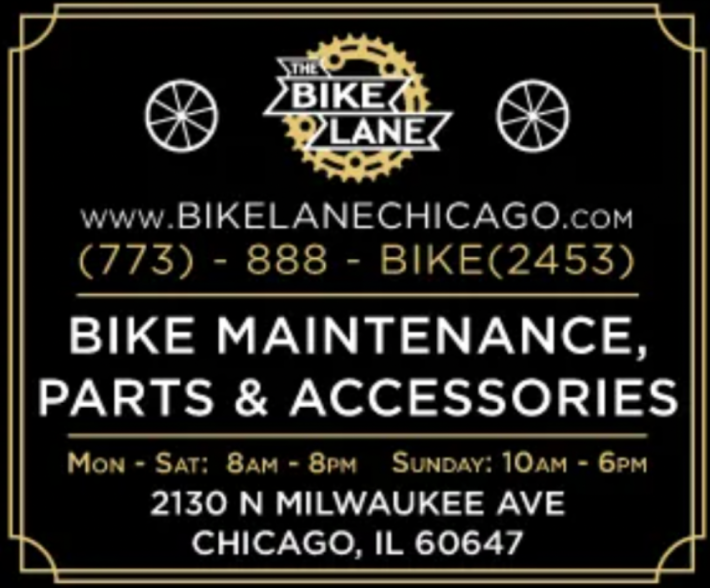
Last Thursday's Chicago Mobility Collective gathering, hosted by the Chicago Department of Transportation, focused on the topic "Investing in Major Capital Projects." These quarterly events replaced the sometimes-dramatic pre-COVID Mayor's Bicycle Advisory Council meetings. The current format allows City officials and representatives of other organizations to give presentations on walk/bike/transit issues and initiatives, followed by breakout sessions where attendees can provide input.
Last week's session was held at the DePaul Center, 1 E. Jackson Blvd. Before the official meeting, there was a "partner's fair" allowing visitors to peruse info from different sustainable transportation-related groups.
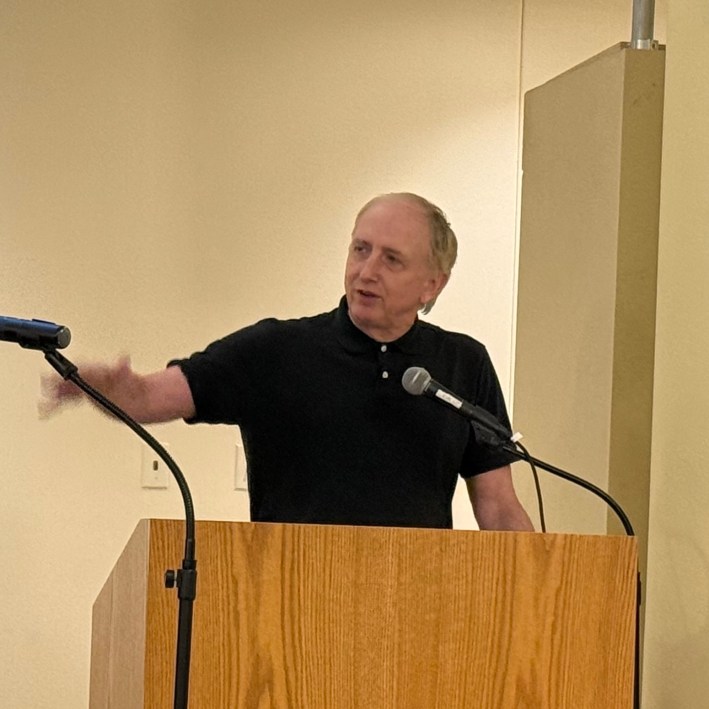
Professor Joe Schwieterman, head of DePaul's Chaddick Institute for Metropolitan Development, kicked off the discussion. "We're excited to be here because this location has a Transit Score of 100 out of 100," he said, referring to the fact the building is at or very near four different 'L' stations. "It is a great place to be advocating for good transportation, and we think we're the only university in the country where students have to ride rail rapid transit to classes to get their degree. So our students go back and forth on the Red Line between our Lincoln Park campus and downtown as just a way of life, and we really think that sends a message about our urban commitment."
The moderator for the panel was Nina Idemudia, CEO of the Center for Neighborhood Technology (far left in the photo below). Joining her on the panel were (from the left) Metropolitan Planning Council's Senior Director Audrey Wennink, who focuses on transportation issues; Chicago Department of Planning and Development Head Deputy Commissioner Dawveed Scully; CTA's Chief Planning and Innovation Officer Molly Poppe; CDOT intern Samantha Anderson, a student at the University of Chicago's Harris School of Planning and Policy; and CDOT Commissioner Tom Carney.
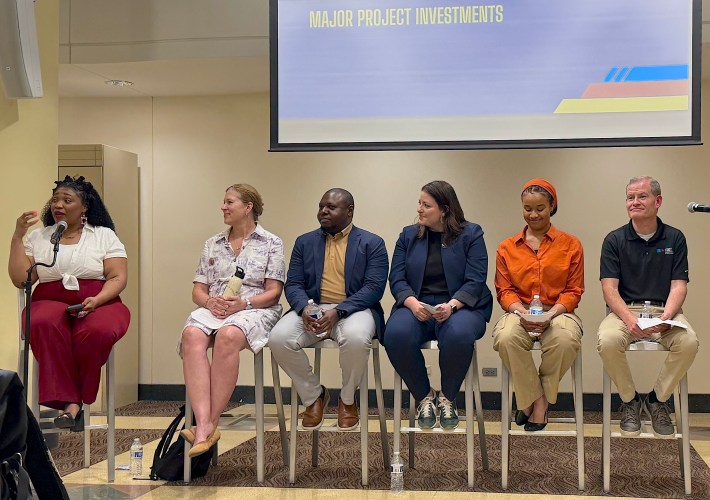
On June 20, Mayor Brandon Johnson announced that Commissioner Carney, who had only been the permanent CDOT chief for 1.5 years, would be leaving the job. The announcement came four months after the mayor said he would "clean house" of staff who were not onboard with his goals.
When discussing capital projects being completed by the CTA, Poppe brought up the Red Purple Modernization and the Red Line Extension as major rail initiatives. She said those projects signify a transition in how the agency thinks about capital projects, with more attention paid to community input and needs.
Poppe said that's also something that they've worked on with CDOT for The Better Streets for Buses Plan. "Because bus is how people are getting around the city of Chicago," said Poppe. "We have a recovery ratio for bus riders behind 70 percent. Our rail ridership recovery is in the low 50s during the weekdays. It's a little bit higher on the weekends. And so that's just a signification of how people are thinking differently about services and how they want to get around. And so our major capital projects that we're thinking about them as continuing to invest in those extensions, the Red Line extension and all the rail projects, but also how do we expand our network, and through our network through bus: bus priority and bus infrastructure."
After the presentations, members of the audience were allowed to ask questions. Deloris Lucas, the founder of We Keep You Rollin' Bike & Wellness Group, asked CDOT for an update plans for a sidepath on highway-like 130th Street, which currently lacks sidewalks, in Chicago's Riverdale community area. The off-street route would connect the area to the Major Taylor Trail. Lucas asked whether collaboration had begun between the Department of Planning and Development and CDOT to get the project started.
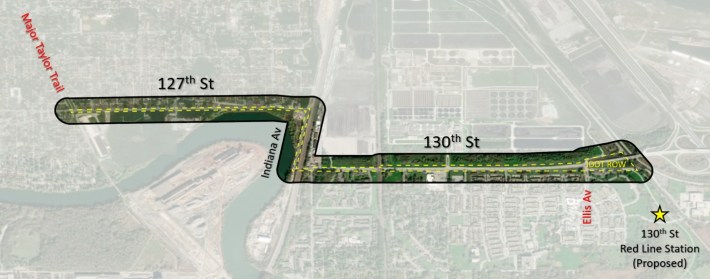
"[DPD Lead Planner Erica Sellke] and the Far South team are definitely in the loop on what's going on down there, and of course, it's right there at the end of the Red Line Extension," said Scully. "So, we're 100 percent engaged and involved, and want to continue to make sure that you get the infrastructure you need. We're also still trying to focus on getting more grocery access to the neighborhood. So, we're always here to support and collaborate with our partners at CTA and CDOT."
After the panel discussion, the audience split up into breakout groups. The first table was "Transit and Better Streets for Buses: Connectivity and Accessible Mobility Options in the Central Region and beyond." The second table was "Divvy Program and Expansion: Electrification of stations." The third table was "Safe Travel for All Plan: Cook County Safety Action Plan recommendations and implementation."
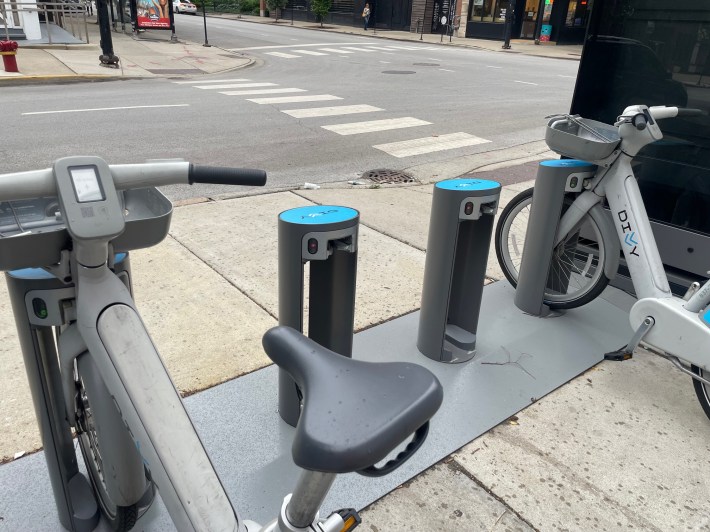
At Table 1, one attendee talked about how they love the architecture of the 'L', except for how dirty it is. This person says that since Chicago is a "garbage city," one with alley access for trash collection, unlike much of New York City, it has a reputation for being a clean city, except for on the trains. Another person said they want the CTA to fix the slow zones on the Forest Park branch of the Blue Line, conceding that the system's impending fiscal cliff will make makes that a challenge.
The remaining CMC meetings of this year will take place on Thursday, September 11, 6 p.m. at Harper High School, 6520 S. Wood St., and Thursday, December 11, 6 p.m. at Jungman School, 1746 S. Miller St. As with the most recent meeting, you can attend in person or via Zoom.
A recording of Tuesday's meeting.
Check out the agenda of Thursday's meeting here.
Look at the presentation slides here.

Did you appreciate this post? Streetsblog Chicago is currently fundraising to help cover our 2025-26 budget. If you appreciate our reporting and advocacy on local sustainable transportation issues, please consider making a tax-deductible donation here. Thank you!




